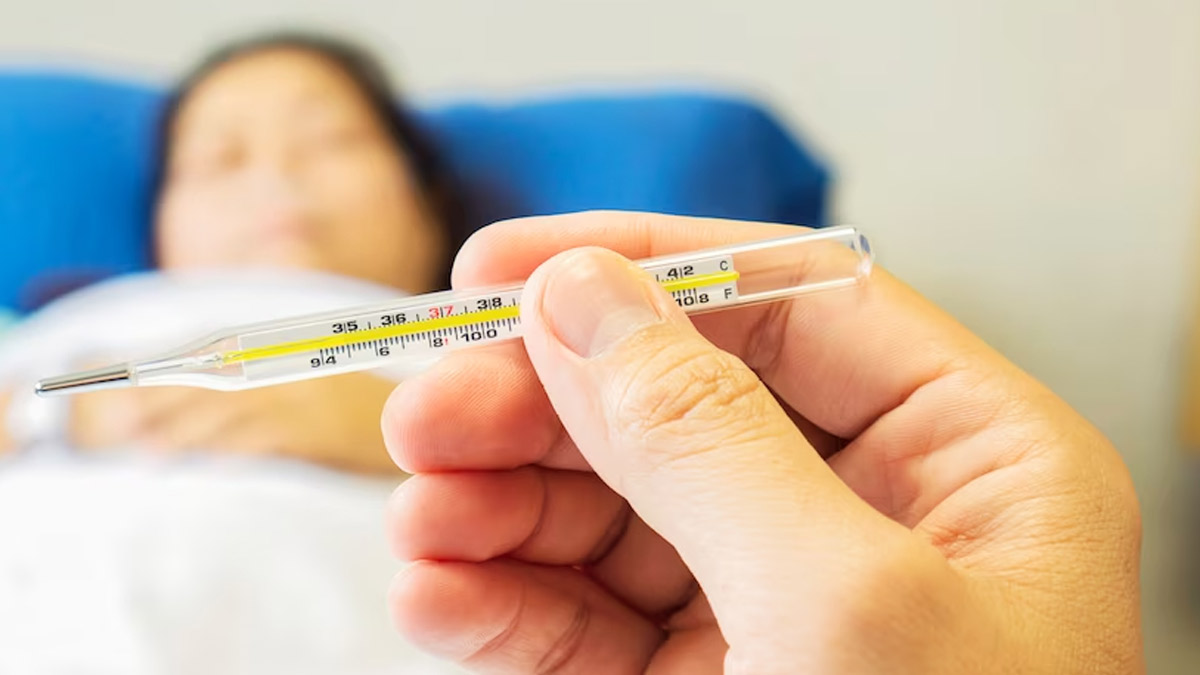
Dengue cases are soaring high in several Indian states. In Punjab, the case count has crossed 4,500, whereas West Bengal reports more than 1,400 cases so far. In Delhi's Ram Manohar Lohia (RML) Hospital, a 38-year-old woman is said to have succumbed to the infection, taking the death count to four in the same hospital this season, reports a leading media house. Amid such alarming reports, it is obvious to have several questions. In this article, we will answer one such common query: When is it the right time to take a dengue test? But before that let us first understand what causes dengue in the first place.
Also Read: What Time Of Year Is Dengue Most Common In India? Measures To Stay Safe
How Do You Get Infected By Dengue

Rajinder Kumar Singal, Principal Director and HOD-Internal Medicine, BLK-Max Super Speciality Hospital, New Delhi, says, “Dengue fever is an acute illness caused by an infection from one or more of the four serotypes of dengue viruses namely DENV 1, 2, 3, and 4.”
The World Health Organization (WHO) reports that about half of the world's population is now at risk of dengue with an estimated 10–40 crore infections occurring each year.
The dengue virus usually spreads from the bite of an infected Aedes species mosquito and is more common in tropical and subtropical climates. It causes symptoms, such as high fever, severe headache, pain behind the eyes, muscle and joint pains, nausea, vomiting, and rash.
While most cases of dengue can be treated at home with rest, hydration, and pain medicine, preventing mosquito bites is the best way to avoid getting dengue in the first place.
When Should You Take A Dengue Test

The WHO says that most dengue cases are mild or asymptomatic. Only rarely does it become severe or fatal. Following an infection, the symptoms usually start to show from 4-10 days and last for 2–7 days.
"If it has been less than 5 days from the time of fever onset, NS1 antigen testing can be conducted, and at a lower cost," says Dr Singal.
"Ordering a dengue NS1 antigen test within the first week of symptom onset is one of the initial investigations recommended for early diagnosis of dengue infection," he adds.
Specifying the same, he says, "Immunoglobulin M (IgM) enzyme-linked immunosorbent assay (ELISA) and/or immunoglobulin G (IgG) ELISA are the tests of choice after the first 5 days of illness."
Post that, meaning after the first 7 days of illness, dengue serology is more useful, says Dr Singal. This is because NS1 antigen remains detectable for up to only nine days and the patient may thus test negative for dengue.
According to the US Centers for Disease Control and Prevention (CDC), no tests are necessary in case of asymptomatic patients and preconception screening. However, if you have symptoms, take the test and get required treatments.
Also Read: Scrub Typhus Versus Dengue: Warning Signs And Differences Between The Two
How To Prevent Dengue Infection

Maintain a clean and hygienic environment
- Do not let water stagnate as it can become a breeding site for mosquitoes
- Empty and cover containers that are used in storing water
- Wear protective clothing such as long-sleeved shirts and pants
- Use mosquito repellents
- In case you are infected with dengue, take necessary measures, including:
- Drink plenty of water
- Rest
- Take pain-relievers for fever
- Look out for severe symptoms and seek medical attention immediately
Conclusion
Early detection and reporting of dengue can help with timely medical intervention and proper treatment. It can prevent the infection from going bad to worse, which in some cases can be life-threatening. Never take your illness lightly and focus on getting better.







